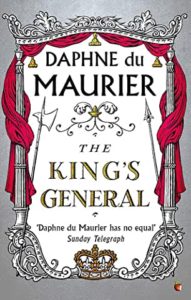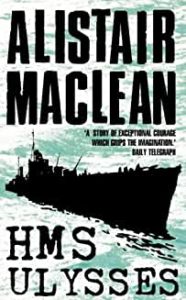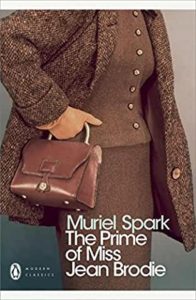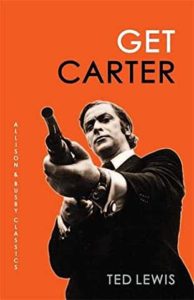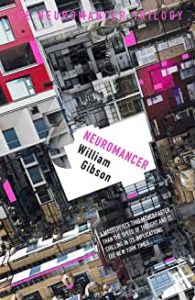Decades: Compiling the Ultimate Library with Anna Mazzola
Welcome back to Decades as a new guest curator joins me to add new books to the shelves of my ultimate library. This is a project which began back in January 2021 and if you look back through the past two years of my blog posts you will find dozens and dozens of amazing book recommendations – as suggested by authors, bloggers and publishers.
This is my Decades Library. There were no books on my library shelves when I first started my mission to compile the ultimate reading library. I only wanted the best books to be found on the library shelves, books other people had read and loved – the books they would recommend to other booklovers. Each week a guest joins me and I ask them to nominate new books to be added to the Decades Library. But they can’t just select books at random, I have set two rules which they must follow…
1: You Can Select Any Five Books
2: You Can Only Select One Book Per Decade From Five Consecutive Decades
Easy? Have a go at choosing which five books you would pick. Which fifty year span do you think best reflects your favourite reading?
This week I am delighted to welcome Anna Mazzola to Grab This Book. I finally got to the opporutnity to meet Anna at Bloody Scotland last year – her panel with previous Decades curators, Douglas Skelton and D.V. Bishop, was one of my festival highlights. She was chatting about her latest book (The Clockwork Girl) and there was also lots of distrubing facts about nuns – you really had to be there.
Before I hand over to Anna to share her five Decades selections I shall draw your attention to this handy wee link which lets you browse and buy Anna’s books: https://www.amazon.co.uk/Anna-Mazzola/e/B01D4XL42M/ref=dp_byline_cont_ebooks_1
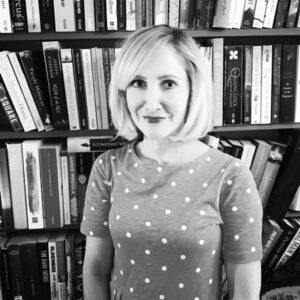 Anna is a writer of historical thrillers and Gothic fiction. Her third novel, The Clockwork Girl, set in Paris in 1750, is a Sunday Times Historical Fiction pick for 2022 and reached number 11 in the Sunday Times Bestseller list. Her debut novel, The Unseeing, won an Edgar Allan Poe award. Her fourth novel, The House of Whispers, is a ghost story set in Fascist Italy and will be published in April 2023. Anna also writes legal thrillers under the name Anna Sharpe, the first of which will be published in 2024.
Anna is a writer of historical thrillers and Gothic fiction. Her third novel, The Clockwork Girl, set in Paris in 1750, is a Sunday Times Historical Fiction pick for 2022 and reached number 11 in the Sunday Times Bestseller list. Her debut novel, The Unseeing, won an Edgar Allan Poe award. Her fourth novel, The House of Whispers, is a ghost story set in Fascist Italy and will be published in April 2023. Anna also writes legal thrillers under the name Anna Sharpe, the first of which will be published in 2024.
When not writing or tutoring for The Novelry, Anna is a human rights and criminal justice solicitor, working with victims of crime. She lives in Camberwell, South London, with her husband, their two children, a snake and a cat.
DECADES
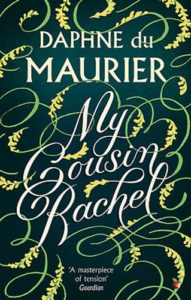 My Cousin Rachel, Daphne Du Maurier, 1951
My Cousin Rachel, Daphne Du Maurier, 1951
I’ve never been able to decide which is my favourite: My Cousin Rachel, or Rebecca. They are both dark and exquisite and explore similar themes. My Cousin Rachel is perhaps the most haunting, however. It was written in 1951 when Du Maurier was at the height of her powers, and while it might on its surface be a romantic novel set amid beautiful Cornish estates, it is in fact a novel about female sexuality, poisoning and power.
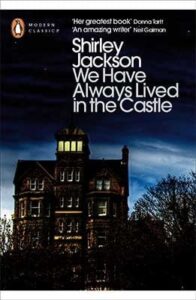 We Have Always Lived in the Castle, Shirley Jackson, 1961
We Have Always Lived in the Castle, Shirley Jackson, 1961
The Haunting of Hill House is the more famous novel, but We Have Always Lived is, to my mind, Shirley Jackson’s masterpiece. Jackson wrote the book towards the end of her rather troubled life. The novel’s two female lead characters combine what Jackson’s biographer Judy Oppenheimer calls the ‘yin and yang of Shirley’s own inner self’. Constance embodies the domestic, while Merricat is strange, headstrong, murderous. A devastating and often darkly amusing exploration of everyday evil. One of my favourite books of all time.
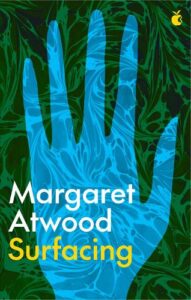 Surfacing by Margaret Atwood, 1972
Surfacing by Margaret Atwood, 1972
Surfacing was one of Margaret Atwood’s early works and remains one of her most unsettling. It tells the story of a young Canadian woman returning to her childhood wilderness home with her boyfriend and two friends to investigate the disappearance of her father. As the story progresses, we see the island exert an increasing pull on Atwood’s heroine, leading her into ever growing wildness.
 Beloved by Toni Morrison, 1987
Beloved by Toni Morrison, 1987
(Also loved Jazz, 1992). A huge, gripping, searing novel. I first read it when I was eighteen and it has stayed with me ever since. Beloved begins: ‘124 was spiteful.’ 124 is a house in Cincinnati in 1873 and it is spiteful because it is haunted by the fury of a baby whose throat was cut to make her safe from slavery. Not an easy read by any means, but an essential one.
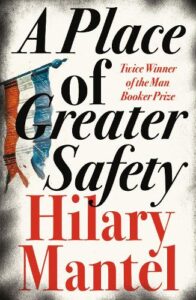 A Place of Greater Safety by Hilary Mantel, 1992
A Place of Greater Safety by Hilary Mantel, 1992
Another huge and often bloody masterpiece, but this one is set during the French Revolution. Mantel’s main characters are the leaders of the Revolution – Danton, Robespierre and Camille Desmouslins, but we also see their wives and other lesser known characters. Complex, witty and brilliant. It was the first novel she wrote, though not the first to be published. Thank goodness she didn’t give up.
Huge thanks to Anna for these mighty selections. Some weeks I prepare the Decades list and I recognise for or five of the books as titles I have read and loved. Other weeks (including this week) I am reminded of why I need to invite guests to help me identify the best books to include in the Decades Library – big, powerful stories which I haven’t read but fully appreciate why they are held in such high regard.
I am adding We Have Always Lived in the Castle to my Audible library. Decades grows my TBR once again – the best outcome for me.
DECADES WILL RETURN

